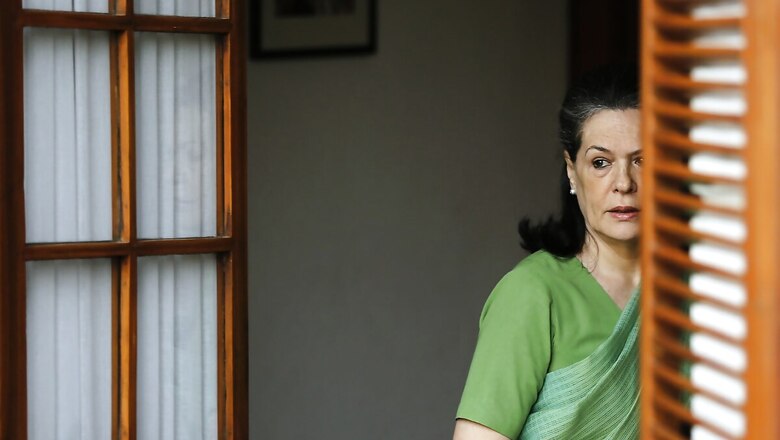
views
Of the infinite desires of man, the chief are desires for power and glory -- Bertrand Russell, Power
In this seminal work dissecting the human craving for power, British mathematician and philosopher Bertrand Russle segregates men broadly in two categories: leaders who appropriate power to their own selves; and the followers or the seekers who derive power from these leaders.
The power flows from the fountainhead and others derive and exercise it in their own little dominions as mandated by the leadership.
The 23 Congress leaders, in their missive to Congress president Sonia Gandhi, seem to indicate their fiefdom is imperilled as the leader is not being able to win or appropriate power to splurge on patronage.
The old order changes, giving way to the new. The transformation though is not always smooth and seamless. China experienced upheavals at every stage of its journey over the last 100 years. Congress party, after all, is of a much older vintage and as behemothal a structure as the CPC. The BJP went through a long and protracted process of transformation to settle leadership issues. The New Labour under Tony Blair succeeded after decades of Tory domination at the hustings.
Leave aside the vassal dominions facing imminent career uncertainties, what matters for the Congress rank and file is the intent of transformation per se; and the new order being envisaged.
The question is: is Congress in the business of power at all?
This brings us back to another of Bertrand Russell's espousal on the third category of people in the power game. To quote Russell:
....but there is a third type, namely, those who withdraw. There are men who have the courage to refuse submission without having the imperiousness that causes the will to command. Such men do not fit into the social structure, and in one way or another they seek a refuge where they can enjoy more or less solitary freedom.
Yogis and saints fall this this category. On the other hand, the will to seek power and govern is the fundamental ingredient of power politics. There are no in-betweens.
A vivid recollection of a meeting with Samajwadi Party chief Mulayam Singh Yadav in the heat of 2007 UP Assembly polls at the state Irrigation Guest House across the Yamuna near Jamia comes to mind. The BSP was on a roll that election. Mayawati was coming to power; and it was writ large on Mulayam's face. But never once, not even once did he betray any signs of nervousness or defeatism. He had just returned from the last phase of campaigning and was eloquent on the prospects of his party's victory in Rae Bareilly and Amethi.
Politicians never give up. Never, even with their back to the wall. Even when the chips are down. You learn it the hard way, like the boxer battered and punched day after day, year after year, waiting for just that one opening, when the guards are down to pounce back. To be in contention, always. Always.
This brings us to the next point in contention in the face of the current crisis. Effective strategy and tactics in political power play. It can’t be anybody's case that Congress’ worst-ever performance in the last two LS polls could be the best possible springboard to success in 2024. Is annihilation of the old order and pulverisation of the headquarters through shock and awe bombardment the genesis for the new one?
The select group of 23 in their letter to Sonia Gandhi also seems to question choice of people who have been nominated to key positions in the recent past and their performance thereafter.
For all the ten years that the Congress was in power between 2004 and 2014, Rahul Gandhi stayed away from government and governance. He has sought to build the party organisation. Stem the rot. In the process, he wielded absolute power, both within and outside the organisation. After the 2014 debacle, he has sought to define and lead the party’s charge against the Modi government, in LS polls and other provincial polls against the BJP.
Strategy and tactics are critical for the achievement of desired political outcomes. Elections anywhere in the world are about narratives. That's precisely what Congress chief Sonia Gandhi did so well in 2004, when she firmed up her alliances. When she walked all the way to Ram Vilas Paswan's house next door to cement the Bihar combination of Congress-RJD and LJP.
After being the undisputed leader of the Congress for the last quarter of a century, a section has openly questioned the current state of affairs in the party, including some who stood by Sonia Gandhi and played key roles in the last transition of power in 1998.


















Comments
0 comment